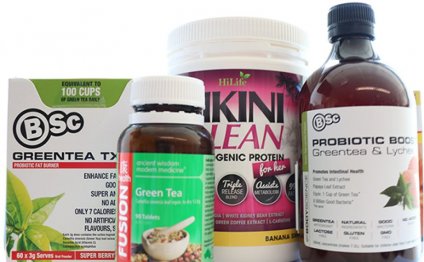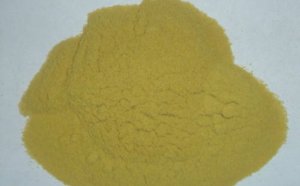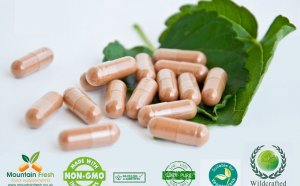
Green tea extract Supplements
Information on green tea diet and weight loss, does the use of this supplement help you boost metabolism and lose weight? What medical conditions is it used for?
October 1 2015 by
Green tea is consumed primarily in China, Japan, and a few countries in North Africa and the Middle East. In recent years it has become popular in Europe and North America and now green tea pills are touted for weight loss, as potent antioxidants, and for tumor prevention.
Potential health benefit
Human research is still very early, but the potential health benefits ascribed to green tea include antioxidant effects, cancer chemoprevention, antiviral effects, blood thinning properties, improving cardiovascular health, slowing mental decline, enhancing weight loss, arthritis protection, and protecting the skin from the damage caused by ionizing radiation. The compound EGCG found in green tea has been shown to regulate dozens of disease-specific molecular targets. Long term human research is required before we determine the appropriate dosage and amount of green tea or green tea extract required to provide these health benefits. However more is not better since high amounts of consumption can lead to sleep disturbances which are harmful to optimal health.
buy Green Tea Extract 100 mg, yielding 35 mg EGCG
 Green Tea Extract offers a convenient way to get the benefits of green tea in a highly concentrated pill form. This product is standardized for bioflavonoid-like antioxidants known as polyphenols, particularly epigallocatechin gallate which has been found in scientific studies to be a potent antioxidant.
Green Tea Extract offers a convenient way to get the benefits of green tea in a highly concentrated pill form. This product is standardized for bioflavonoid-like antioxidants known as polyphenols, particularly epigallocatechin gallate which has been found in scientific studies to be a potent antioxidant.
Supplement Facts
Green Tea Extract Yielding 35 mg epigallocatechin gallate
Suggested Use, dosage: 1 green tea extract tablet two or three times a week with breakfast or lunch. Take the pill in the morning or midday before or with a meal. Evening use may lead to mild insomnia. There is some early anecdotal reports that taking high amounts of GTE which contain catechins can cause some harm to the liver. For this reason I suggest taking no more than one pill three times a week.
Tea information and consumption
Tea is the most widely consumed beverage aside from water. Green tea contains polyphenolic compounds, which account for 30% of the dry weight of the leaves. Most of the polyphenols are flavanols, of which epigallocatechin-3-gallate is the most abundant. Tea is manufactured in three basic forms:
Black Tea - During production, oxidation is promoted so that most of these substances are oxidized.
Green tea is prepared in such a way as to prevent the oxidation of green leaf polyphenols.
Oolong tea is a partially oxidized product. Of the approximately 3 million metric tons of dried tea manufactured, only 20% is green tea and less than 2% is oolong tea.
What's in green tea? What substances does it have that are beneficial?
The fresh leaf is unusually rich in polyphenols which may constitute up to 30% of the dry leaf weight. Polyphenols include catechins, flavanols, chlorogenic acid, epigallocatechin gallate (EGCG), and one unique to tea, theogallin. Caffeine in green tea is present at an average level of 3% along with very small amounts of methylxanthines, theobromine and theophylline. The amino acid theanine (5-N-ethylglutamine) is also unique to tea.
Green Tea and Weight Loss Diet, a fat burner?
Human studies regarding the benefit of green tea in weight loss have not shown consistent results. In one study mentioned below, daily consumption of green tea for 12 weeks reduced body fat. Green tea could enhance metabolism. Scientists are still evaluating whether a green tea pill by itself leads to weight loss. See below for more green tea and weight loss research information. If you plan to drink green tea for weight loss, avoid drinking after mid afternoon or early evening so that your sleep is not disturbed.
Anti-obesity effects of green tea: from bedside to bench.
Mol Nutr Food Res. 2006.
Green tea, green tea catechins, and epigallocatechin gallate have been demonstrated in cell culture and animal models of obesity to reduce adipocyte differentiation and proliferation, lipogenesis, fat mass, body weight, fat absorption, plasma levels of triglycerides, free fatty acids, cholesterol, glucose, insulin and leptin, as well as to increase beta-oxidation and thermogenesis. Adipose tissue, liver, intestine, and skeletal muscle are target organs of green tea, mediating its anti-obesity effects. Studies conducted with human subjects report reduced body weight and body fat, as well as increased fat oxidation and thermogenesis and thereby confirm findings in cell culture systems and animal models of obesity. There is still a need for well-designed and controlled clinical studies to validate the existing and encouraging human studies.
RELATED VIDEO



Share this Post
Related posts
Pure Green tea extract
Aids in increasing fat burning* Helps promote appetite control* Antioxidant support* The health-benefiting effects of green…
Read MoreGreen tea extract reviews
NATURAL antioxidants vary quite wildly in their pricing. Pycnogenol and Enzogenol are at the high end, with red wine extract…
Read More










